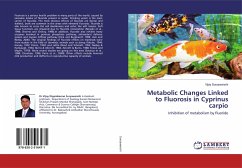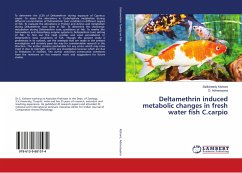Fluorosis is a serious health problem in many parts of the world, caused by excessive intake of fluoride present in water. Drinking water is the main carrier of fluoride. The most obvious effects of fluoride are dental and skeletal, both are common in the areas with elevated fluorosis. Fluoride is also known to cross the cell membranes and enter the soft tissues. Soft tissue functions are impaired due to fluoride intoxication (Rzeuski et al., 1998; Sharma and Chinoy, 1998).In addition, fluoride also inhibits many enzymes involved in pentose phosphate pathway, antioxidant defense system and myosin ATPase pathway (Park and Burghardt, 1999; Vani and Reddy, 2000). The original findings of fluoride effects on mammals were from studies in the field of domestic animals such as sheep (Moule, 1944; Harvey, 1952; Peirce, 1952) and cattle (Rand and Schmidt, 1952; Neeley & Harbaugh, 1954; Burns & Allcroft, 1964, Allcroft & Burns, 1968; Krook and Maylin, 1979). More recent studies are going on this area (Swarup et al., 1998; Choubisa, 1999; Patra et al., 2000). Other effects include lowered milk production and illeffects on reproductive capacity of animals.








